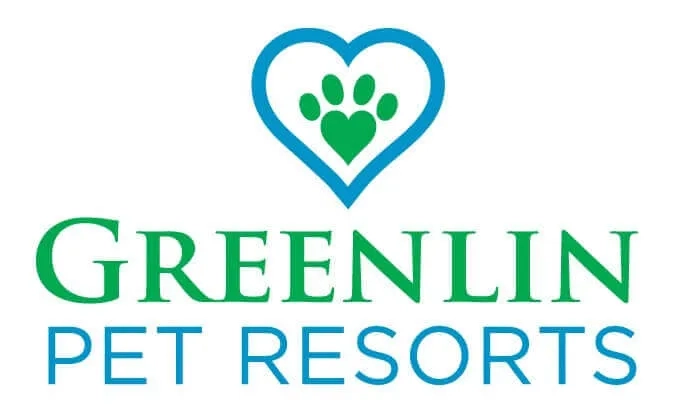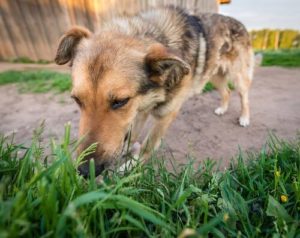Why Do Dogs Eat Grass?
If you have taken your dog outside to use the restroom or go on a walk, you may have noticed that your dog might stop and begin snacking on some grass. Your dog may try to chew it up and swallow it, or maybe they just nom on it for a while and then spit it out.
Stopping every now and then to enjoy a “doggy salad” may seem weird to you, but the good news is that most of the time, it’s totally normal. However, you may want to know why they are doing it, as well as when it might be indicating underlying health or behavioral issue.
Reasons Why Dogs Eat Grass
Unfortunately, there’s not just one simple reason that dogs engage in grass-eating. There are many different reasons why your pooch may choose to chow down on some grass, including:
Diet Deficiency
One popular theory behind your furry friend’s penchant for eating the lawn may be that they have a version of pica or a condition of eating strange items that are not considered food.
The underlying cause may be a diet deficiency, which may mean that your four-legged friend may be missing some vitamins or minerals from their diet. Additionally, your dog may be lacking fiber in their diet. The fiber that grass provides can do many beneficial things for your dog, such as aid in their digestion, passing stool, and otherwise keeping their GI tract in good shape.
If you are worried that your dog is not eating a well-balanced diet, or is lacking important nutrients, contact your veterinarian and discuss possible additions or changes to your dog’s meals.
Instinct
Another thought about why your dog occasionally eats grass is that it’s an instinctual behavior. It is a natural instinct for your dog to hunt and gather food, which is, of course, what dogs did before they became domesticated.
Wild canines did not primarily exist on grass but may have gotten some of the nutrients from it when eating the whole animal after hunting it, especially if their prey ate a variety of different plants. Over the years, dogs have become primarily omnivores, which may also explain their appetite for grass.
Boredom
Your dog may be eating grass because they are experiencing boredom and are trying to entertain themselves. Think about it: dogs enjoy chewing on things, and if they don’t have access to their favorite toy or your favorite socks, they may resort to chewing on grass.
Tall grass can also seem like an enticing pit stop activity during a walk or outside play. They may not be truly interested in actually swallowing the grass, more like playing around with it using a few chomps.
If you are concerned that your dog is eating grass out of boredom, there are steps that you can take to resolve this issue. For one, you can ensure that your dog is well-exercised, which will release some of that pent-up energy and their need to be doing something active. In addition, you can always ensure that they have appropriate things to chew on. You can also make it a habit to spend quality time with your dog and play with them daily.
Your Dog Isn’t Feeling Well
Sometimes, it may seem as if your dog is eating grass because they aren’t feeling well. The grass may tickle your dog’s throat as they are eating, which can help them throw up if they are feeling unwell.
If your dog suffers from excess acid (especially first thing in the morning), you may notice that they will eat grass until they vomit yellow bile. Since dogs can’t take antacids, this is an instinctual way to relieve stomach discomfort.
One method to prevent this behavior is to either give your dog a small meal before bed or to feed them as soon as they wake up. The small amount of food will settle their stomach as it allows the bile to do what it is supposed to (break down food) as opposed to irritating their stomach.
Is It Safe For My Dog To Eat Grass?
A study conducted at UC Davis School of Veterinary Medicine focused on observing dogs after they had eaten grass. The study found that the percentage of dogs who frequently threw up after eating grass was relatively small (22%) and that only 9% of dogs who vomited exhibited signs of feeling unwell prior to eating the grass. The study concluded that grass and other plant-eating is a normal characteristic of domestic dogs.
Grass itself is not toxic to dogs and is generally not a sign that something is wrong.
However, it is important to note that while grass may not be toxic to your furry friends, ingesting any herbicide or pesticide that was sprayed on the grass may be. Additionally, eating grass tainted by animal droppings could cause your dog to become exposed to parasites, such as roundworms and hookworms. If you are concerned about parasitic infection, mention it to your veterinarian as they can run diagnostic tests to determine if your dog is carrying parasites.
You should become concerned about your dog eating grass when it becomes excessive and is coupled with vomiting, diarrhea, weight loss, loss of appetite, bloody stool, lethargy, or repetitive lip-licking. If you notice your pet exhibiting any of these signs, contact your veterinarian to obtain information about what your next steps should be. If you notice your dog eating other plants not grass here are some common toxic plants for your dogs.
Ward Off Boredom at Greenlin Pet Resorts
If you are worried that your dog has taken up grass-eating as its new hobby because it has nothing better to do, contact Greenlin Pet Resorts today!
With five convenient locations in the Central Pennsylvania area, Greenlin Pet Resorts offers a variety of activities to cure the boredom of any dog. We offer dog daycare, long-term boarding, dog training, and grooming at our pet spa.
Our dog daycare offers your dog a chance to play and socialize with other dogs, as well as get important physical activity to stay happy and healthy for years to come. Our boarding options feature premium accommodations for your furry friend, including daily wellness checks, bedtime stories, and even a chance to swim! Our experienced groomers can bathe your dog, as well as clip their nails, and give deshedding treatments.If you are ready to add Greenlin Pet Resorts into your dog’s regular routine or are interested in scheduling a visit at one of our five conveniently-located locations, call us or contact us online to get started! We can’t wait to start making memories with your family!

